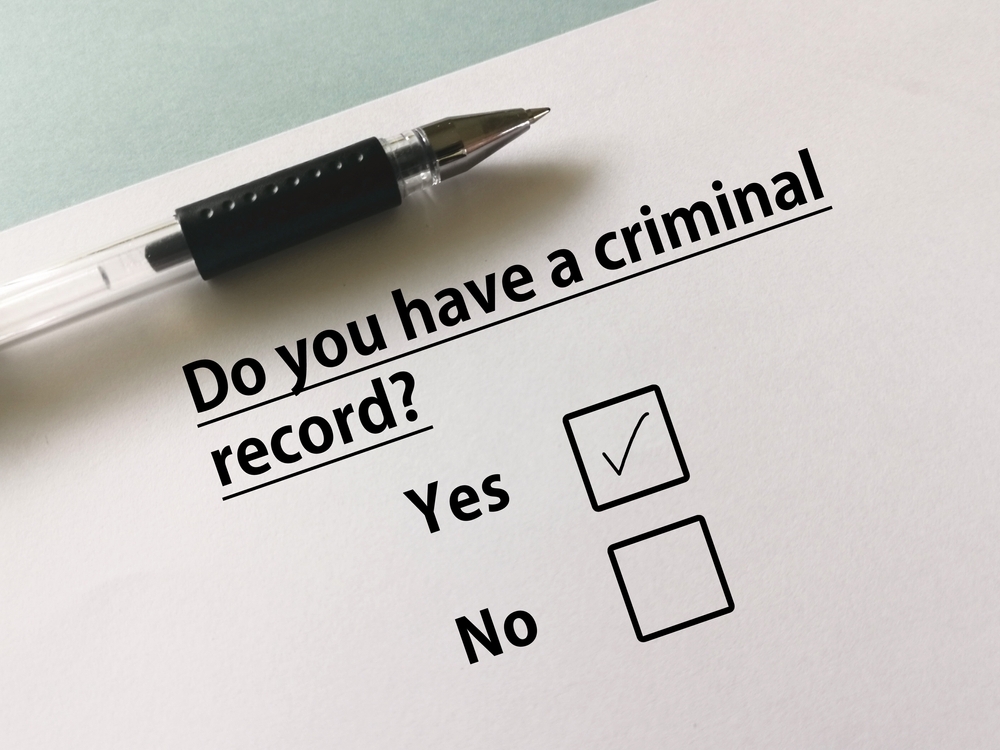
Is a Past Mistake Still Affecting Your Life?
If you have a criminal record in Pennsylvania, it may be standing in the way of job opportunities, housing, or furthering your education – even if the offense happened years ago. Fortunately, The Law Offices of Joseph Lesniak helps people across the state explore options like expungement and record sealing to move forward with confidence.
Pennsylvania law provides a second chance for many individuals through expungement or record sealing – but how do you know if you're eligible? And what steps should you take to clear your record?
In this guide, our team at The Law Offices of Joseph Lesniak explains what expungement is, who qualifies, and how the process works so you can take control of your future and make informed decisions.
What Is Expungement in Pennsylvania?
Expungement is a legal process that removes or seals a criminal record. Once expunged, your record is no longer visible to most employers, landlords, or schools during a background check. In many ways, it’s like your record never existed.
Not all records are eligible, but Pennsylvania has expanded its laws to allow more people to move forward with a fresh start. There’s also a related process called record sealing that may be available to those who don’t qualify for full expungement.
Who Is Eligible for Expungement?
You may qualify for expungement in Pennsylvania if you meet any of the following conditions:
- You were arrested but not convicted – for example, if charges were dismissed, withdrawn, or you were found not guilty
- You completed the Accelerated Rehabilitative Disposition (ARD) program for a non-violent, first-time offense.
- You were convicted of a summary offense and have stayed arrest-free for at least five years.
- You are 70 years old or older and have had no arrests for 10 years.
- You received a pardon from the Governor of Pennsylvania.
- You have a juvenile record that meets specific criteria.
- You qualify for automatic sealing under Pennsylvania’s Clean Slate law, which applies to certain non-violent misdemeanors and lower-level felonies after a waiting period with no new offenses.
What Records Cannot Be Expunged?
Some records are not eligible for expungement under current Pennsylvania law, including:
- Most felony convictions (unless you receive a pardon or meet rare post-conviction relief criteria).
- Violent crimes, such as aggravated assault, robbery, or homicide-related offenses.
- Sexual offenses that require registration under Megan’s Law.
- Recent misdemeanor convictions that do not meet Clean Slate or expungement requirements.
- DUI convictions, unless they were resolved through the ARD program.
Types of Records That May Be Cleared
Arrests and Dismissed Charges
If you were arrested but never convicted, you can petition for expungement right away. Even dismissed charges may appear in background checks, so clearing them is essential to avoid unnecessary red flags.
ARD Program Cases
Completing the ARD program often allows you to have your charges expunged. This is a common option for first-time DUI and minor drug offenses. Expungement helps ensure your record reflects the second chance you’ve earned.
Juvenile Records
Pennsylvania allows for the expungement of juvenile records under certain conditions, especially if you’ve avoided further legal trouble. Clearing your juvenile record helps you move forward without youthful mistakes holding you back.
Summary Offenses
Minor charges like underage drinking or disorderly conduct may be expunged after five years of remaining offense-free. Additionally, some non-violent misdemeanors may qualify for automatic sealing under the Clean Slate law.
What Is the Clean Slate Law?
Pennsylvania’s Clean Slate law automatically seals certain non-violent misdemeanor convictions and summary offenses after a specific period of time – usually 10 years without any new convictions. Sealed records are not visible to most employers or the public, but may still be accessed by law enforcement, courts, and employers in sensitive industries (such as healthcare, childcare, and law enforcement).
You don’t have to file a petition for Clean Slate sealing, but if you’re unsure whether your record qualifies, a lawyer can review your case and explain your options.
How the Expungement Process Works
Here’s a step-by-step overview of how to file for expungement in Pennsylvania:
1. Determine Your Eligibility
Speak with an experienced expungement attorney to find out if your record qualifies. Laws can be complex and frequently change, so getting a legal opinion is a smart first step.
2. Collect Required Documents
This includes court records, proof of program completion (like ARD), and details about your case. Your attorney will help you gather and organize everything needed.
3. File a Petition with the Court
Your attorney will submit a formal expungement petition in the county where the offense occurred. This document explains why you qualify and includes supporting materials.
4. Attend a Hearing (If Required)
Some cases require a hearing before a judge. If so, your attorney will present your case and answer any questions. The judge will consider the nature of the offense, your rehabilitation, and your role in the community.
5. Wait for the Court’s Decision
If the court approves your expungement, your record will be removed from public databases. In some cases, the court may instead order that your record be sealed – erasing it from most background checks but keeping it visible to certain agencies.
Note: The expungement process can take several months to complete. Filing fees may apply, but fee waivers are sometimes available based on financial need.
Why Work with an Expungement Attorney?
While you can file on your own, expungement involves strict legal requirements, deadlines, and paperwork. Hiring a qualified attorney helps you:
- Avoid mistakes that could delay or deny your petition
- Build the strongest possible case for clearing your record
- Handle court hearings and communications with the prosecution
- Save time and reduce stress
Your record is too important to risk doing it alone. An experienced lawyer knows how to navigate the system and maximize your chances of success.
Common Misconceptions About Expungement
Myth: All Criminal Records Can Be Expunged
Unfortunately, no. Felonies and violent offenses usually cannot be expunged. However, sealing may be an option for some non-violent misdemeanors.
Myth: Expungement Happens Automatically
Expungement must be requested by filing a petition. Only certain offenses may qualify for automatic sealing under the Clean Slate law.
Myth: Expunged Records Are Gone Forever
Expunged records are removed from public view, but they may still be accessible to law enforcement and courts, especially if you’re involved in future legal matters.
Start Moving Forward Today: Reach Out to The Law Offices of Joseph Lesniak
At The Law Offices of Joseph Lesniak, we understand how much a criminal record can hold you back, and we’re here to help you move forward. Our firm has a strong track record of helping clients across Delaware County and throughout Pennsylvania, including Philadelphia, Allentown, and Pittsburgh.
We’ll walk you through your options, explain your rights, and guide you through the expungement process with the experience and dedication your future deserves. Whether you're seeking to remove a dismissed charge, clear an ARD record, or explore relief under the Clean Slate law, we're ready to advocate for your second chance.
Contact us today to schedule a confidential consultation and take the first step toward a clean slate and a brighter future.
Disclaimer: This article is for informational purposes only and does not constitute legal advice. Laws and eligibility for expungement may change over time. Please consult with a qualified Pennsylvania expungement attorney to discuss your specific circumstances.

